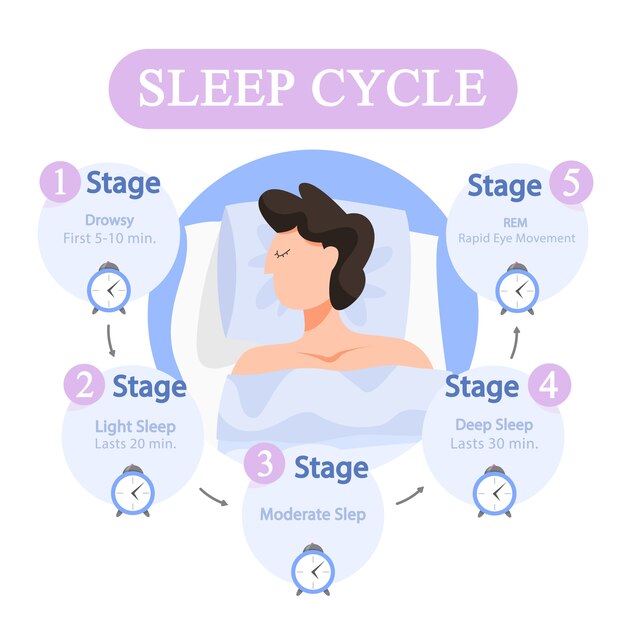“I’ll sleep when I’m dead.” Have you ever heard someone say that, or even said those words yourself?
There was a time I felt this way, and judging by the numbers, I’m not alone. According to sleep researchers, you might just get there quicker too if you’re not getting enough high-quality sleep.
On average, we are getting 20% less sleep than we did just 50-60 years ago, with the average American clocking in at 6.5 hours. 25% of us get up to 6 hours a night, while another 14% get 5 hours or less per night.
For most of us, this amounts to a nightly reduction of 1.5 – 2 hours of sleep per night.
I know, at first glance this doesn’t appear to be a big deal, but when you consider that this amounts to one less night of sleep per week for the average person, it starts to add up.
Have you ever thought about how you would feel if you skipped one night of sleep per week… every week?
The reality of it is, that many of us are doing just that.
Last year almost half of all American adults reported having trouble staying awake during the day.
Even more concerning, an estimated 1 in 25 adult drivers reported having fallen asleep while driving during the past 30 days – clearly indicating that sleep deprivation is a major problem that gets relatively little attention.
This is problematic because sleep is crucial to the proper function of every single system of the body, and directly affects your mental, emotional, and physical performance, and we can’t escape the consequences of getting too little of it.
The consequences of sleep deprivation can be devastating.
Try depression, anxiety, memory loss, immune system failure, type 2 diabetes, cancer, cardiovascular disease, heart disease, obesity, burnout, and yes, even premature death.
A large body of evidence suggests that most people require between 7-9 hours of sleep each night for optimal function and prevention of disease. However, 35-40% of U.S. adults report sleeping less than the recommended 7 hours per night.
No matter how you want to look at it, we appear to have a problem here. So what went wrong and what can we do about it?
I will get into all of that, but to gain a better overall understanding, today I’d like to start with the sleep cycle and cover the specific stages of sleep.
In doing so, I hope that you gain an appreciation of what should be happening while you sleep.
There are two main types of sleep which are characterized by the brain wave patterns in a sleeping person’s brain. They are rapid eye movement (REM) sleep and non-rapid eye movement (NREM) sleep.
This can get a little confusing, yet it doesn’t need to be. Depending upon who/what you read, you might see that a sleep cycle can range anywhere from 3-5 stages. It’s all a matter of semantics and depends upon how the two main types of sleep are broken down.
During sleep, you generally move through 3 phases: light sleep, deep sleep, and REM sleep. Think of these 3 phases as 3 stages that form one complete sleep cycle.
You arrive at 5 stages simply by breaking light sleep and deep sleep into two separate phases respectively.
We start in light sleep (stage 1) where you are essentially on the border between being awake and falling asleep.
You typically don’t dream in this stage, but because your muscles are still active, you might awaken with a sudden jerk or twitch before you finally do fall asleep. This stage should consume 4-5% of your total time asleep.
During stage 2 (still considered light sleep), your breathing and heart rate slow down and there is a slight decrease in body temperature.
Muscle activity declines and your awareness of your surroundings fades. You spend more time here than in any of the other stages – roughly 45-55%.
Next, deep sleep (stage 3) begins.
Also referred to as “delta sleep”, where awareness of your surroundings further declines paving the way for the complete unawareness of sounds and all other external stimuli. 4-6% of your time is spent here.
You then transition right into stage 4 or very deep sleep.
During this stage of deep sleep, you are dead to the world. It is here that the repair and regeneration of your body take place. During deep sleep, your body releases fat-burning and muscle-building hormones such as growth hormone and testosterone.
This results in an increase in muscle mass, a decrease in body fat, and an overall improved recovery of all your body’s physical systems.
It’s hard to wake you up in this stage because breathing rate, heart rate, body temperature, blood pressure, and neural activity all reach their lowest levels. When in very deep sleep, your muscles are fully restored and immunity is built.
Periodically, you might notice that you sometimes wake up with a groggy feeling. It’s often because something or someone woke you up during this deep sleep stage of your sleep cycle.
Stage 4 deep sleep should comprise 12-15% of your total time asleep. In all (stage 3 + stage 4) deep sleep, you’re looking at 15-20%.
Finally, whereas deep sleep is for the body, REM sleep (stage 5) is for the mind.
REM (rapid eye movement) sleep is characterized by the random movement of the eyes and low muscle tone throughout the body. At the same time, the heart rate increases and breathing becomes rapid and shallow. Most notably, dreaming takes place during this stage of sleep.
REM sleep is critical for brain performance and organizing memory. When in REM sleep, your brain plays back the events of the day deciding what is important and what it should forget – essentially building your memory. When you get adequate high-quality REM sleep, you wake up feeling refreshed and refocused.
During a typical night’s sleep, you generally go through four or five periods of REM sleep. Deep sleep accounts for a higher portion of our sleep in earlier cycles, whereas REM sleep accounts for a higher portion in later cycles – which, are shorter in the beginning and get longer towards the end of the night.
However, during times of reduced or impaired sleep, our brains will drop into REM sleep for longer periods in earlier cycles demonstrating its priority of importance. But don’t forget, if this goes on for too long unchecked, the corresponding loss of deep sleep will begin to impact the body’s overall ability to repair and recover.
REM sleep accounts for 20-25% of your total sleep or about 1.5 to 2 hours of a full night’s sleep.
To go through all the stages of sleep (a sleep cycle) on average takes about 90 minutes. The first cycle is often the shortest ranging from 70-100 minutes, while later sleep cycles tend to fall between 90-120 minutes. Ideally, you should go through 4-6 full cycles during a night’s sleep.
I hope I’ve succeeded in giving you a basic understanding of what happens while you sleep. Hopefully, this information helps you make better use of your smartwatch/sleep tracking data which can sometimes be confusing.
Next time, I’d like to address the importance of the sleep-wake cycle as it relates to your circadian rhythm and introduce the topic of chronobiology – the branch of biology that studies biological rhythms and other time-related phenomena in living things.

